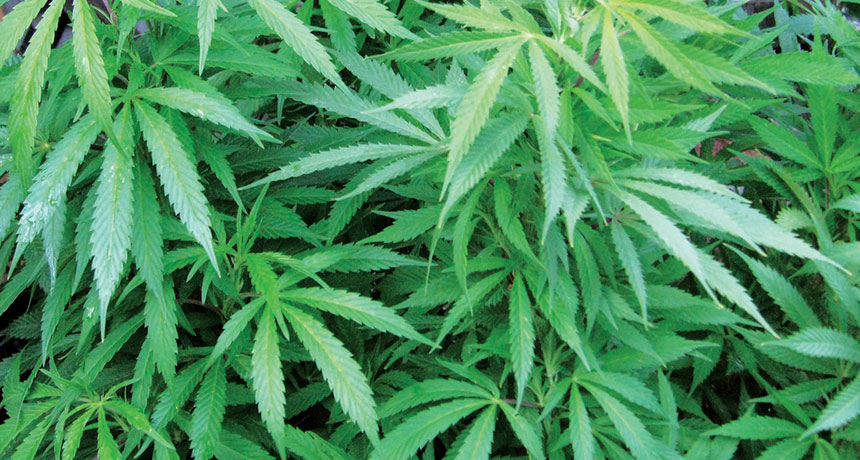Marijuana component fights epilepsy
Severe seizures reduced with cannabidiol, but more testing is needed

GREEN OPTION A no-buzz component of marijuana can reduce severe epileptic seizures, a study suggests.
Scott Beale/Flickr (CC BY-NC-ND 2.0)
Severe seizures reduced with cannabidiol, but more testing is needed

GREEN OPTION A no-buzz component of marijuana can reduce severe epileptic seizures, a study suggests.
Scott Beale/Flickr (CC BY-NC-ND 2.0)